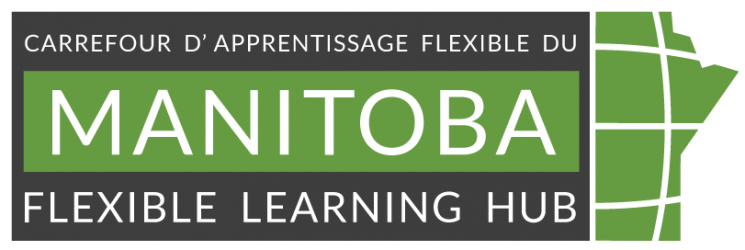
Image by Emmanuel Ikwuegbu from Unsplash
Alternative forms of assessment for online teaching
Content reviewed June 2023
The menu below provides some manageable alternatives to consider, together with some important considerations. Suggested here are some reasonable adjustments to be used in times of crisis, which will not exactly replicate the original assessments, but may offer your students some manageable alternatives during challenging times.
Find the form of assessment you are currently using, and review the suggestions you could consider using instead.
Modified from Alternative forms of assessment from the University of Manitoba.
| Current assessment method | Alternatives to consider | Considerations to ensure standards |
|---|---|---|
| Time-constrained unseen exams in invigilated exam rooms or in-class tests | “Take-away” exams, in which you set the questions or tasks virtually and ask the students to submit their responses electronically within a set period of time (see detailed advice leaflets from London School of Economics (LSE) Toolkit advice on Take-Home Assessment and Manchester Metropolitan University advice-leaflet) Remote proctoring often relies on students being able to use technology that can be problematic for home use, so it’s not as straightforward. Many LMSs can support the timed release of examination papers and corresponding submission facilities that can help support time-constrained exams. | As with regular take-away papers where students have access to materials, the design of questions may need to be reframed to move away from recall-based tasks to questions that require students to demonstrate how they use information rather than reiterate what they have learned. It will be necessary, therefore, to provide guidance for students with the change in orientation of the task. It is also good practice to re-run any changes to question formats through the usual moderation processes. You will unlikely be able to put this in place for scalable numbers unless you already have systems in place, although various vendors are working hard to meet urgent demand. To deter cheating, you could advise students that you will run ‘spot checks’ with a sample of the student population, where you will discuss their reasoning for the answers they’ve provided. |
| In-class presentations where students speak to an audience of their peers or others and are assessed not only on the content but also their presentation techniques | Ask students (individually or in groups) to submit a narrated presentation in electronic form that can then be tutor-marked and peer-reviewed. PowerPoint is familiar to most students and offers a slide-by-slide voice-narration recording facility. Ask students to prepare a podcast on the topic to be submitted electronically. | You will need to consider that, given the recorded presentation format, students can have multiple opportunities to prepare the item they are submitting rather than having to cope with the one-off nature of a live presentation. |
| Portfolio, logbook or assessment notebook | It is likely that the best solution here is to move hard-copy portfolios to e-portfolios, for example, in your LMS. | Where these have been partially completed already, assessors will have to use professional judgment to decide whether sufficient evidence of achievement of the learning objectives has been achieved already by the time of university closure. For some students without ready internet access or lacking digital confidence, moving to e-portfolios might be challenging and need extra guidance. |
| Oral exams, for PhD examinations in person, or other forms of oral assessment (e.g. in language learning) | These could readily be undertaken by video conference software or other electronic remote means (as they already are on occasions when Doctoral examinations are undertaken transnationally). | Students may need significant support in developing the confidence to work virtually where they have no prior experience. |
| Assessed seminars, group discussions and other similar activities | These could likely be held in an online platform already used within your institution, such as Zoom, WebEx or MS Teams. | Staff and students may need support learning how to use this approach if it isn’t part of their regular learning experiences. |
| Lab work | It may be possible to replicate some aspects of lab work through simulations in which students are presented with data sets and required to interpret them. Often this means focusing on the interpretation of data rather than working in the lab to achieve the results personally. Simulations can also be used remotely so students can ‘see’ data produced elsewhere and be asked to comment/interpret. | If students can be provided with different data sets for personal interpretation, this can mitigate the risk of ‘over-sharing’ or personation. |
| Posters | You can potentially use a digital infographic, mind map or other visuals which can be submitted via UM Learn, for example, or posted in shared spaces, particularly if peer review is required. | To confirm the authenticity of the submitter, you may wish to supplement this with a short online oral. |
| Objective Structured Clinical Examinations (OSCE) and other tests requiring students to demonstrate a range of skills | It may be possible for students to submit digital portfolios containing, for example, videos of themselves performing a range of practical tasks. | This method may be problematic in professional disciplines where the achievement of specific capabilities is required at 100% (e.g., Nursing, drugs calculations). |
| Peer assessments and support | Peers can email each other drafts for comments or use a virtual space within the institution’s LMS. | Group performances may well be too complex to organize off-site. |
| Theatre, dance and other performances | Individuals and groups can be asked to work off-site to prepare and submit videos of their work alongside reflective commentaries or accounts. | Videos cannot replicate the authentic live performance element but may suffice in crisis time. |
| Face-to-face feedback | Tutors can deliver individual and generic group feedback via audio or online means. | not applicable |
Get help for your online or blended assessments

Are you seeking help with feedback or assessments in your online or blended course? We have staff you can consult with for free and a second set of eyes or a second opinion on your course design.
Book a one-on-one “Instructional Design Consultation” with our Instructional designer to improve our course today!
You may also be interested in



Equity, Diversity, and Inclusion in Online Teaching: Where to Begin
